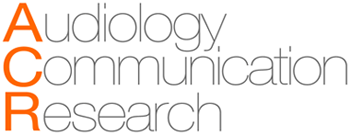Abstract
Purpose
1) To measure speech understanding in noise with the Naída Q70 in the omnidirectional microphone mode (T-Mic) and adaptive directional microphone mode (UltraZoom) in reverberating acoustics and noisy conditions. 2) To measure improvement in speech understanding with use of the Advanced Bionics (AB) Naída Q70 sound processor for existing Harmony users.
Methods
Seven adult unilateral cochlear implant (CI) recipients, who were experienced users of the Harmony sound processor, participated in the study. Sentence recognition was evaluated in quiet in a reverberating room, with Harmony and Naída CI Q70 processors. Effectiveness of Naída CI Q70’s UltraZoom directional microphone was evaluated in noise. Target stimuli were recorded Portuguese sentences presented from 0° azimuth. Twenty-talker babble was presented at +5dB SNR from ±90° azimuth. In addition to sentence recognition, the participants also rated the clarity of sound and difficulty of listening in the various test conditions. In order to evaluate the outcomes under more realistic acoustic conditions, tests were conducted in a non-sound treated reverberant room (RT60 of 553 ms and noise floor of 42.7 dBA (Leq).
Results
The average sentence recognition in quiet in the reverberant non-sound treated room was 38.5% with the Harmony and 66.5% with Naída CI Q70. The average sentence recognition score in noise was 40.5% with Naída CI Q70 without UltraZoom and 64.5% with UltraZoom. For subjective ratings of sound clarity and listening ease in noise no difference were identified between the test conditions.
Conclusion
For experienced users of the Harmony sound processor, speech understanding in quiet in a reverberating room was significantly improved with the Naída CI Q70. The use of an adaptive directional microphone technology (UltraZoom) enhanced speech perception in noise.
Keywords:
Cochlear implants; Speech perception; Directional microphone technology; Reverberation; Noise

 Thumbnail
Thumbnail
 Thumbnail
Thumbnail
 Thumbnail
Thumbnail
 Thumbnail
Thumbnail



